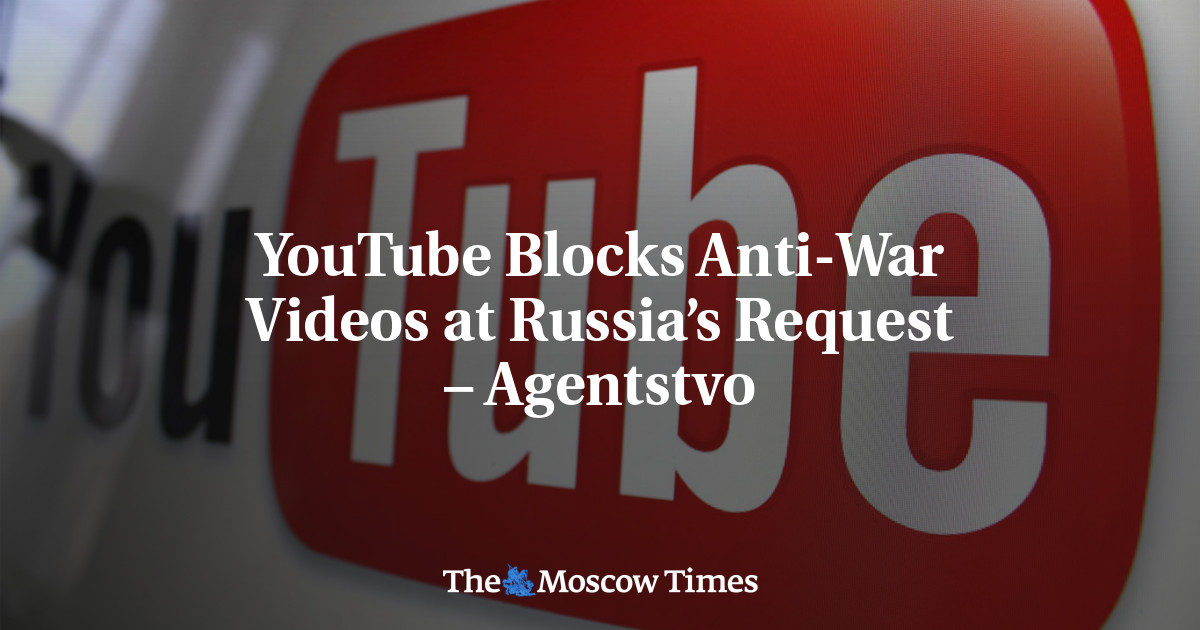YouTube has blocked at least three videos that show viewers how to evade military service after it received a request from the Russian authorities, the investigative news outlet Agentstvo reported Monday.
Russia’s state media watchdog Roskomnadzor notified YouTube between December and February that the three videos violated Russia’s law on information technology and information protection, according to screenshots of the YouTube legal support team’s blocking notices.
The website also notified the human rights watchdog OVD-Info that one of its YouTube channels may be blocked after it recently received a complaint from Roskomnadzor. According to an email YouTube forwarded to OVD-Info on May 6, Roskomnadzor restricted access to its channel “Kak Teper?” (“What Now?”), which it said could be restored if the channel “eliminated” unspecified violations.
“As far as we know, this is the first case in Russia when Roskomnadzor is demanding to block the channel in its entirety rather than a specific video,” OVD-Info spokesman Dmitry Anisimov told Agentstvo.
“We’re now in contact with Google and trying to explain that this demand to block our channel is illegal and represents politically motivated censorship,” he added.
Removing content related to human rights at the request of the Russian government and not because it violates Google’s content policies marks a “new trend,” Agentstvo said, citing an unnamed cybersecurity expert.
YouTube has deleted the channels of many pro-Kremlin media organizations since Russia invaded Ukraine in early 2022, sparking accusations of censorship from the Kremlin.
Russia has so far stopped short of banning YouTube like it has banned Facebook, X (formerly Twitter), and Instagram, along with many independent media outlets.
Before invading Ukraine, Russia threatened to punish Google and other Western tech companies if they failed to delete banned content, including posts supporting the late opposition figure Alexei Navalny.



The idea of breaking up a company is to make the space more competitive. Theoretically if YouTube had a proper competitor, then the decision to honor Kremlin requests would be more complicated, since it could lead to a loss of market share
Not at all: any company that wants to operate in a given country, has to follow that country’s laws, whether they like them or not.
Whichever company were to disobey the Kremlin, would lose all Russian market share… and perhaps more importantly, all ability to offer Russian citizens access to non-Russian news and points of view.